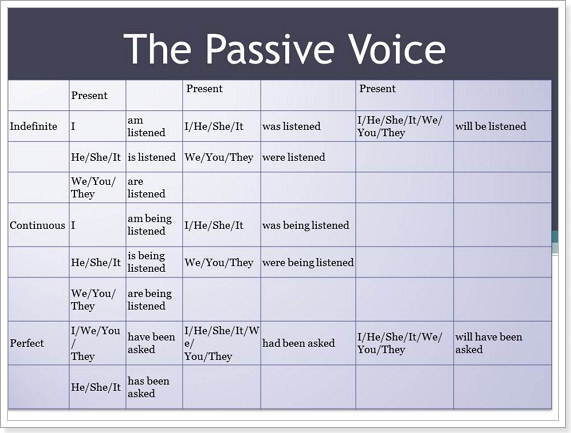- Read the text
How Towns Have Arisen
Most villages and towns on the British Isles came into being because of their favourable situation for trade.
Rather more than a hundred years ago, a great change came over the land. Many machines were invented about that time. Spinning and weaving, for example, which had previously been done by hand, were done by machinery that were driven by water or steam-power.
The work which usually was done in the houses of the people began to be carried on in large mills or factories, and workers found it convenient to live near them.
More and more factories were built and men and women left the country districts in great numbers and crowded into towns.
Since then the movement of people into towns has been going on until now. England is dotted with great cities.
All over Britain, and especially in those parts were the coal needed for power is to be found, there are mining and manufacturing areas, such as the Lancashire cotton district, the Black county of Midland, and others. A great many towns are found close together in those districts, and a great many people live within a small area, so that the population is very dense.
Vocabulary:
Trade – торговля
Rather – скорее
Weaving – ткачество
Mill – мельница
Convenient — подходящий
Crowd — переполнять
County – округ
Found – основать
Within – в
Dense – плотный, густонаселенный
- Translate the text and retell it.
- Find English equivalents in the text:
Большинство сел и городов на Британских островах. Более, чем сто лет назад. Фабрики были построены. Движение (переселение) людей в города. По всей Британии.
[attention type=red]Remember![/attention]
The Passive Voice in English language:
Bill plants a flower – The flower is planted by Bill.
Bill planted a flower – The flower was planted by Bill.

- Do these sentences passive:
Example: Rebecca writes e-mails.
E-mails are written by Rebecca.
Jill rescued four dogs.
The students handed in their tests.
Sue learned the song.
John crashed into red jeep.
Amy forgot her keys.
We play baseball.
The mechanic didn’t repair the broken car.
Alex put her bag on the floor.
The teacher did not open the door.
The boys lost the match.
They don’t speak Spanish in this shop.
Dan asked Kevin a very interesting question.
Tom planted the tree in the yard last month.
He gives her a present.
Grandmother looks after children.
The waiter brought Mary a big pizza.
Granny told us a very interesting story.
Somebody broke into our flat last Monday.
Tony didn’t send me an e-mail.
Parents meet Chris at the bus station.
- Use the verbs in the Passive Voice:
- I can’t pay the fare, because my purse … (steal).
- This irrigation project … (finish).
- Sue … (drive) to work by her husband every day.
- My car … (repair) by my friend.
- Are you going to make breakfast? No, it … (make) by my sister
- Open the brackets using the correct form:
At the station they will (meet, be met) by a person from the travel bureau. 2. Susan will (meet, be met) them in the hall upstairs. 3. The porter will (bring, be brought) your luggage to your room. 4. Your luggage will (bring, be brought) up in the lift. 5. You may (leave, be left) your cap and coat in the cloakroom downstairs. 6. They can (leave, be left) the key with the clerk downstairs. 7. From the station they will (take, be taken) straight to the hotel. 8. Tomorrow she will (take, be taken) them to the Russian Museum.
- Use the verbs in the Passive Voice:
1.The rule explained by the professor at the last lesson (to understand) by all of us. 2. The song was so beautiful that it (to learn) by everybody. 3.I hope the invitation (to accept) by everybody. 4. The letter (to post) in half an hour. 5. It seems to me that music (to hear) from the next room. 6. At the last contest the first prize (to win) by our team. 7. The question (to settle) as soon as they arrived. 8. Your report must (to divide) into two chapters. 9. Soon he (to send) to a conference. 10. The book (to discuss) at the next conference. 11. The essay must (to hand) in on Wednesday. 12. Yesterday he (to tell) to prepare a speech. 13. The article (to publish) last week, if I am not mistaken. 14. The lecture (to attend) by all of us yesterday. 15. A car (to call) fifteen minutes ago, so we are expecting it any moment. 16. The young man (to introduce) to me only a couple of hours ago, but it seems to me that I’ve known him for years. 17. The mobile phone must (not to use) at the lesson.
- Translate the sentences using the Passive Voice:
Письмо Биллу отправлено мной. Это здание было построено нашими мастерами. Комната декорирована моей мамой. Стол накрыт моей сестрой. Это платье было сшито моей двоюродной сестрой. Доклад был написан Джимом. Доклад был одобрен профессором. Этот рисунок нарисован моей младшей сестрой. Документы напечатаны секретарем. Моя машина была отремонтирована моим другом. Книги Оскара Уайльда читаемы во всем мире. Эта книга была написана давно. Письмо было написано Анной. Ужин съеден. Сок выпит. Книга была прочитана мной.
- Do these sentences passive:
I bought potatoes yesterday. They sell milk in this shop. I translated the whole text. He stole a lot of money from the shop. They finished the work. By three o’clock the workers loaded the trucks. They broke the window last week. He wrote this book in the 19th century. They carried out a number of important experiments in this laboratory. Livingstone explored Central Africa in the 19th century. By the middle of autumn we planted all the trees. They forgot the story. Teachers usually make corrections in red ink.
- Make up your own sentences using the Passive Voice.

 forma7.ru
forma7.ru





